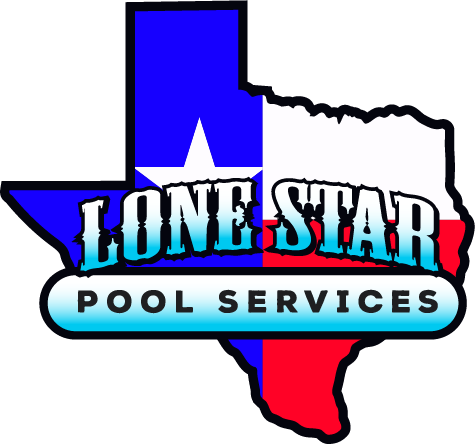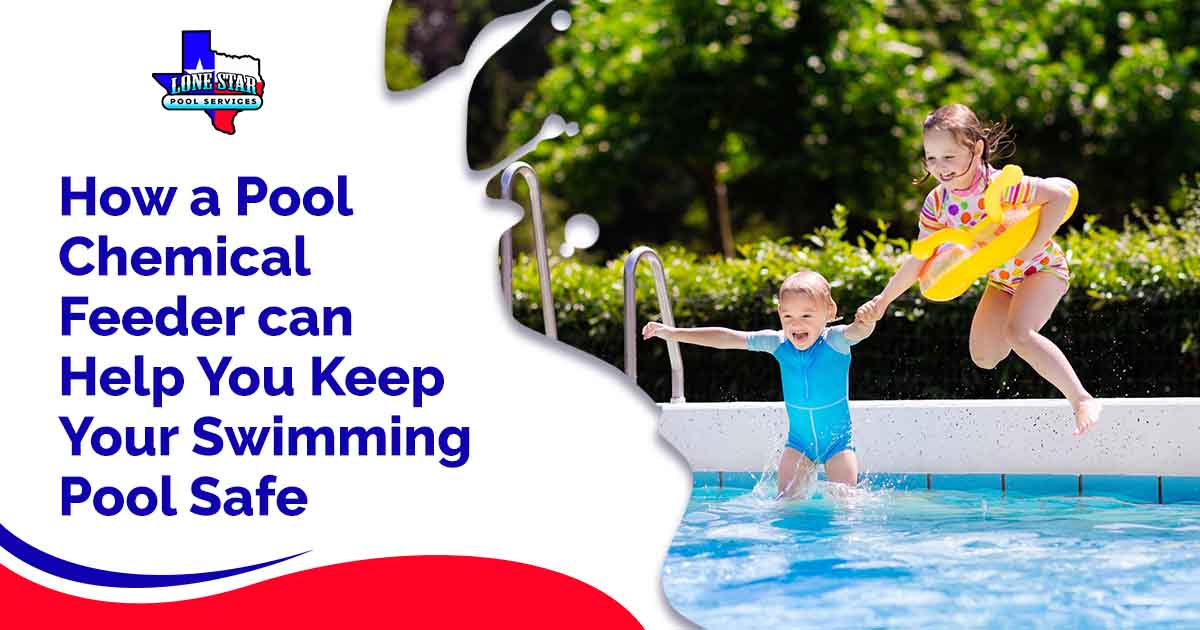A pool chemical feeder is a fantastic time saver. Owning a swimming pool requires a significant amount of routine care and maintenance. This also involves a large variety and amount of pool chemicals, the most important of which are sanitizers. Bromine and chlorine help keep your pool safe for swimmers but using these chemicals effectively can be tricky. Over or under chlorinating your pool can waste chemicals, create an unsafe environment, and waste money. This is why many pool owners choose to use a pool chemical feeder.
What is a Pool Chemical Feeder and Why Would I Need One?
A pool chemical feeder is known by many names, such as:
- Pool chemical feeder
- Pool chemical dispenser
- Automatic pool chlorinator
- Erosion feeder
Regardless of the name of your specific unit, they all offer basically the same benefits. They’re all quick, easy, and effective ways to sanitize your swimming pool. These dispensers provide the right amount of bromine and chlorine throughout your swimming pool. This means you don’t have to worry as much about under-sanitizing or adding too many chemicals.
Normally, a pool owner is required to manually mix large amounts of chemicals. Not only can this be dangerous, but also difficult. With a dispenser you simply fill the mechanism and let it do the work for you. Using a feeder reduces the amount of time you must spend on maintaining your swimming pool. Not only this, but it also protects expensive pool equipment from staining and damage caused by chorine floaters or skimmers.
What Types of Chemical Feeders Are Available?
There are two primary types of swimming pool chemical feeders to choose from. Both options are great and can save you time and money. People who do choose one over the other tend to do so based on their own personal preferences as they both perform equally well.
The first type of feeder is an in-line chemical feeder. This is generally installed within your swimming pool’s plumbing. Surprisingly enough, it’s not a difficult item to install, however, many people do prefer to hire a professional to play it safe. In-line chemical feeders have to be installed after all other components. It’s also important that they’re installed at ground level to prevent back flow issues. If your swimming pool has a heater then you’ll also need to make sure you install a one-way check valve between the heater and the chemical feeder. This valve will prevent damage and corrosion from the chlorine gas.
The second type of feeder is an off-line chemical feeder. Many pool owners choose this option because they don’t require special installation. Off-line feeders are also popular when there’s no available room for an in-line feeder. An off-line feeder needs to be secured to the concrete floor of your pool. This allows it to remain stationary.
Using Your Pool Chemical Feeder
Your pool’s chemical dispenser should hold about a week’s worth of chemicals. Overfilling the feeder doesn’t necessarily prolong time between fills. Instead, it’s much more likely to push more chemicals than what’s needed into your pool. You should always follow the manufacturer’s recommended instructions when it comes to chemical safety. Filling your feeder requires strategic planning. Many feeders may be able to hold more chemicals than what your pool or spa requires. If you over chlorinate your swimming pool or spa then you’ll cause a pH imbalance. Research how much chemicals your swimming pool needs and use the correct amount according to the feeder’s instructions.
Once you’ve calculated the correct amount of chlorine or bromine, simply put that amount into the feeder. You can use tablets or sticks. You then select the proper dial setting and let the feeder do the rest. It’s best to wait until the reserve is completely depleted before you refill the chemical feeder.
The water will flow over the tablets or sticks and dissolves them slowly. This is referred to as an erosion feeder. The ideal feeder produces a consistent dissolve rate and delivers constant flow.
Liquid chlorine feeders also exist; however, they’re generally used in public or commercial pools. In these instances, liquid chlorine pumps directly into the pool’s plumbing. An output control dial as well as a time clock help regulate how much and when chlorine is added to the water.
Proper usage helps reduce the amount of time you spend on taking care of your swimming pool. You and your family will now have more time to relax and enjoy the pool for yourselves.
Caring for Your Swimming Pool
All pool owners agree, taking care of a swimming pool is a lot of work. The chemical levels must be closely monitored to ensure you aren’t over chlorinating or under chlorinating your pool. Your swimming pools needs can also vary depending on the time of year, amount of sunlight exposure, and usage.
Thankfully, items such as chemical feeders can help make your regular pool maintenance and care a little easier. It’s always important that you follow the manufacturer’s instructions when working with swimming pool chemicals. You should never add granulated chlorine to an erosion feeder as the granules will dissolve much more quickly than a slow release tablet or stick. You should also make sure that you never use bromine in a feeder used for chlorine. Combining these chemicals can be highly dangerous.
If you’re ever uncertain of how you should properly care for your pool, call the experts at Lone Star Pool Services. We’re standing by to help answer all of your swimming pool ownership questions. We can also get you started on the right track when it comes to caring for your new swimming pool.
If you love the idea of a pool but feel like you don’t have the time needed to perform daily, weekly, or monthly tasks, we can help there too. Lone Star Pool Services offers weekly pool care to help lighten your load when it comes to regular pool maintenance.

